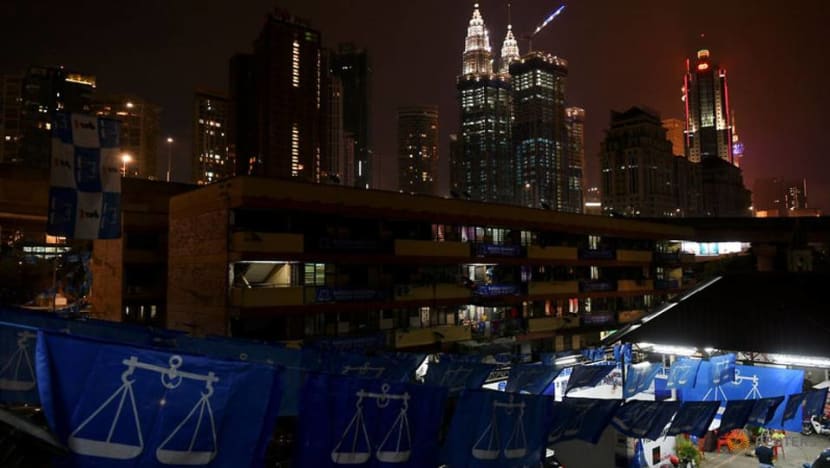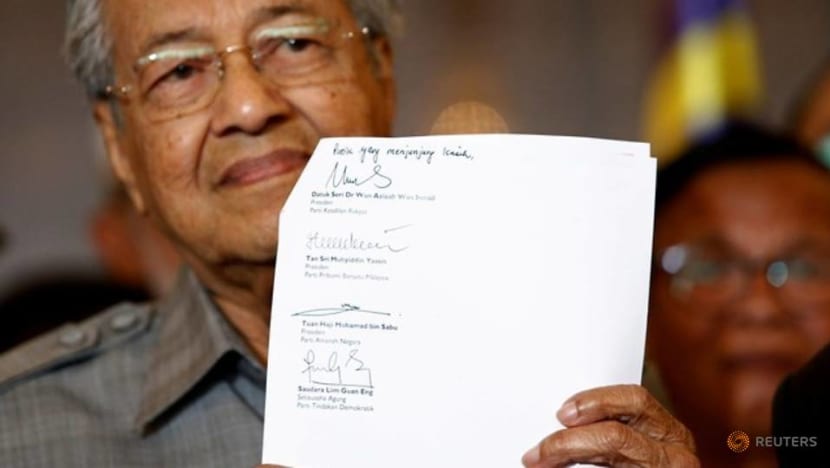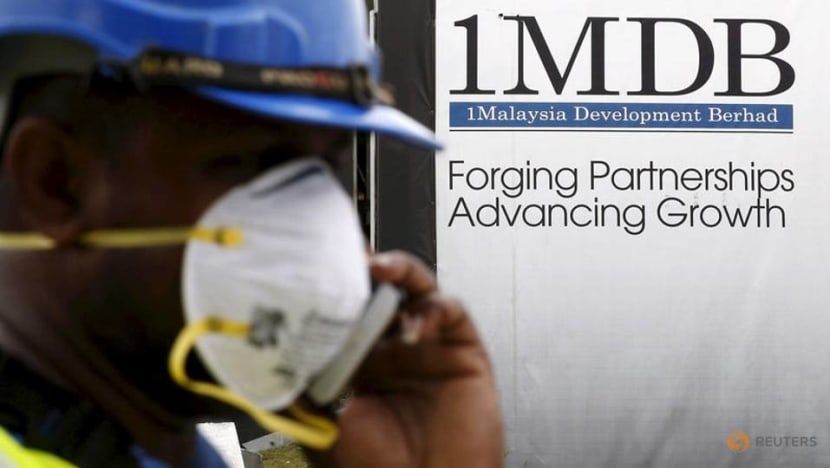commentary Commentary
Commentary: The bewildering game of Malaysian politics, the rot within the Barisan Nasional
The Barisan Nasional enjoyed huge powers of incumbency and shifted the goalposts; yet its internal weaknesses brought it down, says Penang Institute's Ooi Kee Beng.

FILE PHOTO: Barisan Nasional flags hang at a public housing estate in Kuala Lumpur, Malaysia April 21, 2018. Picture taken April 21, 2018. REUTERS/Stringer/File Photo
PENANG: And so it finally happened. Malaysia’s Barisan Nasional (BN), who lost the majority vote but won the elections in 2013 now loses the power it had held since independence.
How could it fail so badly? It had the powers of incumbency with which it could move goalposts whenever it needed to.
It had the means and a record of buying up the referee, the players and the linesmen. And it had endless yellow and red cards that it happily used to send its opponents off the field.
Seriously, it effectively owned the stadium along with the sports channels covering the game as well.
So wherein lay its weaknesses in the general elections of 2018?
The biggest flaw, most analysts would agree, was its president, Prime Minister Najib Razak, the leader of UMNO, which is the heart and soul of the coalition.
Tainted by suspicions of wrongdoing since long before he became Prime Minister following a coup against Abdullah Badawi in 2009, his term in office continued to be plagued by serious scandals such the murder of Mongolian model Altantuya Shaariibuu, and the 1MDB affair which was investigated by a list of countries, including the US, Switzerland and Singapore.
When Najib saw in the results of the 2013 elections that he could not win back the Chinese Malaysian community, he appeared to give up on the middle ground — something that is rather irrational in a multiracial country like Malaysia — and began courting the more extreme elements among Malay nationalists and Islamists.
This modus operandi seemed to work though, and it led to the Pakatan Rakyat breaking up.

IN FULL BATTLE GEAR, MAHATHIR EMERGES
However, in this endless process of political manipulations, he brought a new player into the game against him — the retired long-term Prime Minister Mahathir Mohamad. At which point exactly Mahathir ushered himself back into the game is no longer really important.
What is important is that Mahathir, though 92 years of age, came out in full battle gear, swearing to dislodge Najib and to bring him to justice for his alleged abuse of power and corruption, and perhaps most poignantly, for his alleged disregard of UMNO’s responsibility to build the nation.
Now, in the bewildering game that is Malaysian politics, Mahathir is historically and unquestionably the most effective striker ever. He never plays to lose. He is quite clearly the Pele of Malaysian politics, bar none.
In the penalty shootout that the election campaign of 2018 actually was, the BN side seemed to miss most of its shots.
Najib’s decision to choose Wednesday as the polling day and yet not immediately declare it a national holiday, to have the shortest campaign period legally allowed, and to ban Mahathir’s new party from political activities just before he announced polling day, brought, among many other miscalculations, a backlash that in the end strengthened the Malay tsunami that had been predicted by Pakatan Harapan strategist Liew Chin Tong.
Pakatan Harapan did not miss many shots at goal, and when the last penalty kick had been taken, it had won 122 of the 222 parliamentary seats available according to reports, 11 more than it needed to win the match.

WHO TO BLAME?
With hindsight, one should also ask what BN could have done differently?
Many would agree that once the 1MDB case was covered up time and time again, more and more steam built up within UMNO itself, leading in the end to fatal splits that finally moved the Malay electorate to vote for former UMNO leaders rather than present ones.
Had UMNO changed its president a year or so before the elections were called, and more credible and trusted leaders put in place instead, and all that done before Mahathir felt compelled to take the field, all of BN’s political advantages would have worked in its favour, and the opposition parties, relegated by the breakdown of Pakatan Rakyat, would never have been able to bully the sitting government.
But to put all the blame on Najib would not be correct either.
Much blame should also be put on the evolution of UMNO and of BN into a state where a leader like Najib could act with such impudence as he did when caught in the 1MDB and other scandals, where all internal dissent had been nullified, and where all external opposition were rendered unthreatening.

STRANGE BEDFELLOWS
There is of course also that important factor of the Reformasi Movement. Malaysia had been in transition away from Mahathirism, i.e. excessive authoritarianism, since 1998.
But the two prime ministers who took over after Mahathir retired in 2003 - Abdullah Badawi and Najib - never lived up to expectations. The rot continued.
The amazing paradox was that Mahathir himself led the movement formed to fight him.
Anwar Ibrahim’s camp and Mahathir’s camp became strange bedfellows when Najib’s style of running the government stirred up such resentment in these two that Pakatan Harapan finally realised that Mahathir was the only one who could win the Malay vote they would need to take power.
In a strange twist of fate, the ambitions of the Reformasi Movement became fellow travellers with the man whose greatest success was his coinage of Vision 2020 and Bangsa Malaysia.
He will now with all probability, lead the country into that fateful year when Malaysia is meant to stand as a beacon of hope for the region and the developing world.
Dr Ooi Kee Beng is the Executive Director of Penang Institute, a think tank funded by the State of Penang.














